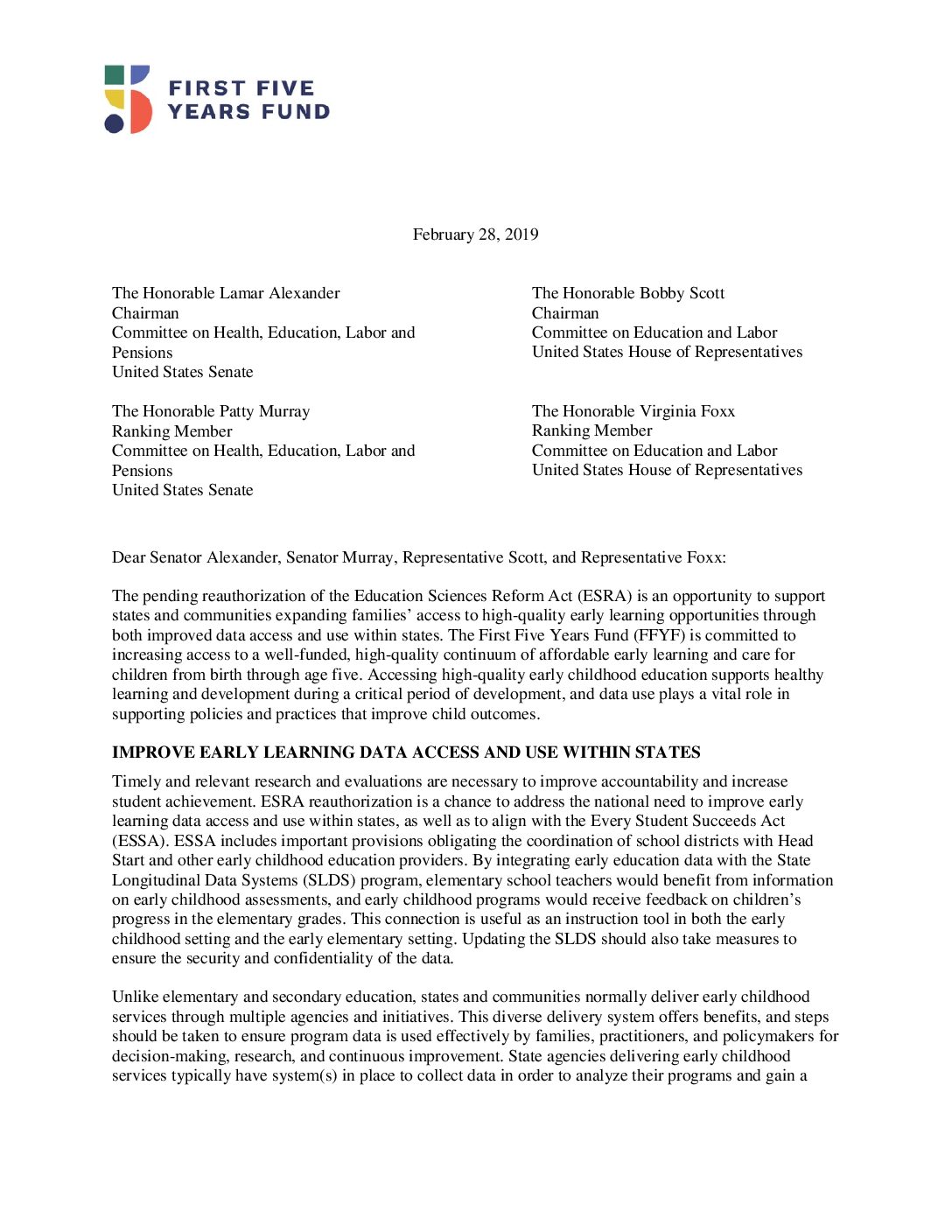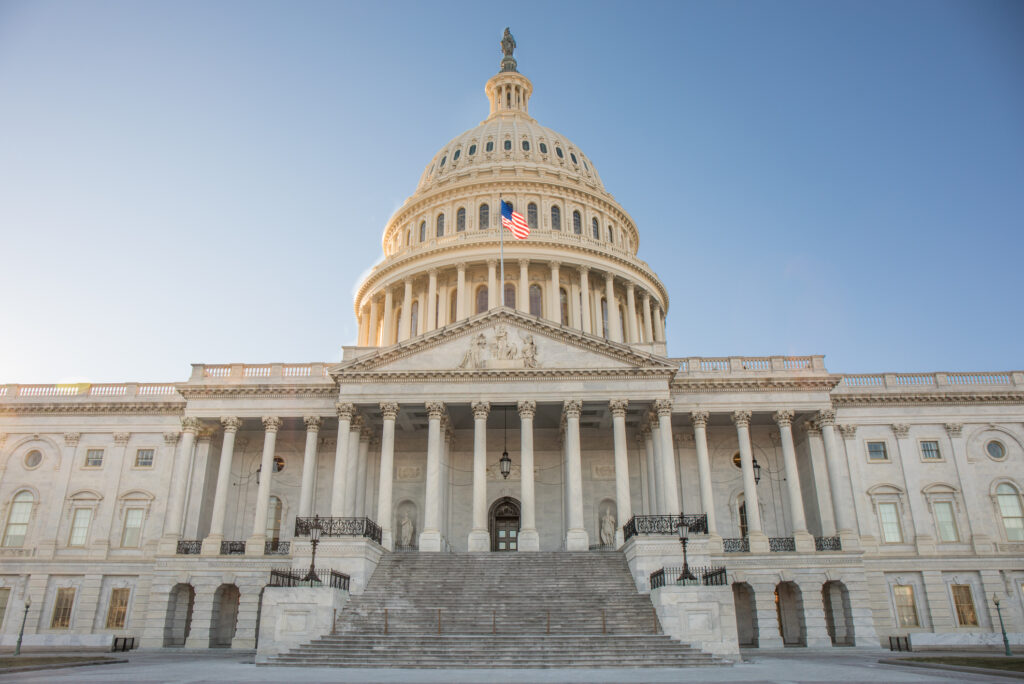FFYF Calls for Improved Early Learning Data Access and Use Within States in the Education Science Reform Act

The Education Science Reform Act (ESRA) established the Institute of Education Science (IES), an independent research arm of the U.S. Department of Education, which collects and analyzes education data. As ESRA is due for reauthorization, FFYF has written the following letter encouraging the 116th Congress to improve early learning data access and use within states to empower educators and policymakers to improve the quality and outcomes of early learning programs.
March 1, 2019
The Honorable Lamar Alexander
Chairman
Committee on Health, Education, Labor and Pensions
United States Senate
The Honorable Patty Murray
Ranking Member
Committee on Health, Education, Labor and Pensions
United States Senate
The Honorable Bobby Scott
Chairman
Committee on Education and Labor
United States House of Representatives
The Honorable Virginia Foxx
Ranking Member
Committee on Education and Labor
United States House of Representatives
Dear Senator Alexander, Senator Murray, Representative Scott, and Representative Foxx:
The pending reauthorization of the Education Sciences Reform Act (ESRA) is an opportunity to support states and communities expanding families’ access to high-quality early learning opportunities through both improved data access and use within states. The First Five Years Fund (FFYF) is committed to increasing access to a well-funded, high-quality continuum of affordable early learning and care for children from birth through age five. Accessing high-quality early childhood education supports healthy learning and development during a critical period of development, and data use plays a vital role in supporting policies and practices that improve child outcomes.
IMPROVE EARLY LEARNING DATA ACCESS AND USE WITHIN STATES
Timely and relevant research and evaluations are necessary to improve accountability and increase student achievement. ESRA reauthorization is a chance to address the national need to improve early learning data access and use within states, as well as to align with the Every Student Succeeds Act (ESSA). ESSA includes important provisions obligating the coordination of school districts with Head Start and other early childhood education providers. By integrating early education data with the State Longitudinal Data Systems (SLDS) program, elementary school teachers would benefit from information on early childhood assessments, and early childhood programs would receive feedback on children’s progress in the elementary grades. This connection is useful as an instruction tool in both the early childhood setting and the early elementary setting. Updating the SLDS should also take measures to ensure the security and confidentiality of the data.
Unlike elementary and secondary education, states and communities normally deliver early childhood services through multiple agencies and initiatives. This diverse delivery system offers benefits, and steps should be taken to ensure program data is used effectively by families, practitioners, and policymakers for decision-making, research, and continuous improvement. State agencies delivering early childhood services typically have system(s) in place to collect data in order to analyze their programs and gain a better understanding of the families they serve. Unfortunately, these systems are not always linked, causing a barrier to the essential need for data sharing within a state, between the agencies overseeing critical elements of the early childhood system and the families they serve. Additionally, static data systems increase the regulatory burden on community programs tasked with reporting the same or similar information to different agencies.
Data sharing challenges are not new. When Congress updated the Head Start Act in 2007, it required states to establish State Advisory Councils to address this and other coordination challenges. The Head Start Act required these councils to “develop recommendations regarding the establishment of a unified data collection system for public early childhood education and development programs and services throughout the State.” This obligation encouraged important state planning and coordination, but funding challenges and other obstacles prevented states from developing unified data systems.
Updating the SLDS program to expressly support and encourage linking early childhood data systems within states would empower stakeholders, including families, to make better decisions. Encouraging this cross-agency approach – in addition to promoting alignment of early learning, elementary and secondary, post-secondary, higher education, and workforce systems – would transform the early education policy and practice landscape.
Thank you for considering our recommendations. We appreciate your leadership and would be pleased to meet with your staff to further discuss ESRA reauthorization as a component of high-quality early learning.
Sincerely,
Sarah Rittling
Executive Director
First Five Years Fund
Subscribe to FFYF First Look
Every morning, FFYF reports on the latest child care & early learning news from across the country. Subscribe and take 5 minutes to know what's happening in early childhood education.




